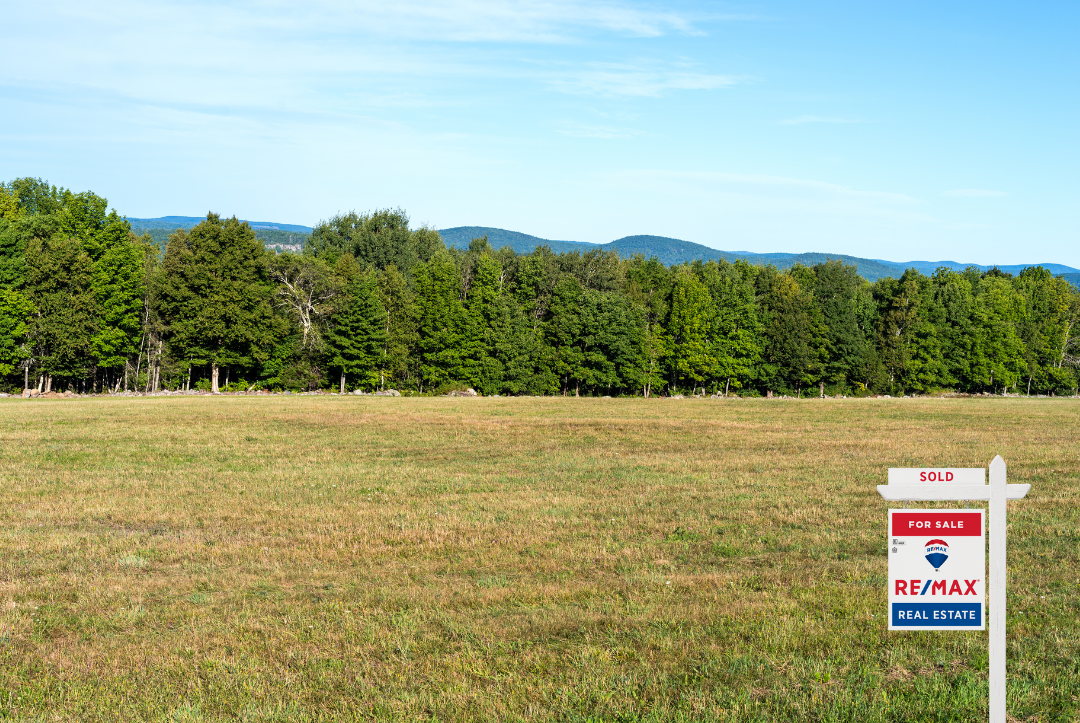When buying a home in the Canadian real estate market, many commonly assume that the bulk of the cost is for the home, but in reality it, it is the land that the house is built on that is of most value.
The housing market is all about the land since, especially in hyper-dense cities, is ostensibly finite. While Canada is one of the largest countries in the world by land mass, and are are still plenty of development opportunities from coast to coast, it is also one of the most expensive markets on the planet.
But whether you purchase an empty lot in the middle of Toronto or vacant land in the outskirts of Saskatchewan, it is an entirely different process than buying a conventional property.
So, what do you need to know?

Everything You Should Know About Buying Vacant Land in Canada
Here are eight things that you should know when purchasing vacant land in the Canadian housing market:
#1 An Investment Opportunity
Buying vacant land can serve as a tremendous investment opportunity to generate steady income or save for retirement. Depending on where you live, there are so many ways that you can utilize this land, from operating it as a rental property to using it for commercial purposes. Indeed, one of the key advantages of buying vacant land is that you can decide what you want to do with it.
#2 Conduct or Review Recent Surveys
Land surveys are critical for land buyers. The purpose is to determine the property’s legal boundaries and easements. Unless the survey was done within the last year or two, it is essential that you conduct a survey with your name attached to the endeavour. You can hire a professional firm to help you begin the rigorous process. Costs will vary on the size of the land survey.
#3 Know the Costs of Developing the Vacant Land
So, without existing infrastructure on the vacant property, you will need to develop it yourself. Indeed, this goes beyond just putting together lumber and building kitchens. Instead, you will need to clean and level the land, access power lines, and identify water and sewage solutions. Suffice it to say, there is much to do when buying vacant land, which can be pretty expensive.
#4 Where Are the Roads and Utilities?
Be it residential or industrial property, you need to ensure that your land is near utilities, such as power lines, phone lines, a water main, water and gas. This can be difficult to secure in a remote area. If the property is very remote, you may need to plan to go off-grid with solar power, which will depend on local law. Investigate the rules associated with incorporated versus unincorporated townships – some will allow greater flexibility than others. In addition, when you are exploring vacant lands, it would be prudent to locate well-maintained roads enabling easy access to essential services.

#5 Understand Zoning Laws
The objective of zoning laws is to differentiate the property between commercial, industrial, and residential. Therefore, it is your job – with the help of your real estate agent – to discover which zoning laws apply to the area you want to buy. Of course, you can always apply for rezoning the property, which requires research and due diligence.
#6 Request a List of Restrictions
While you’re researching the zoning laws, request a list of restrictions, such as constructing a fence, parking a certain number of automobiles, or the height of any building built on the land. While you can always negotiate changes to the list, especially if they are outdated, it is always best to develop within the confines of these restrictions.
#7 Natural Disasters
Canada’s remote areas are more prone to natural disasters than jurisdictions closer to city centres. Some of these regions will see flooding, tornados and severe snowstorms. This can be harder to handle when you live in an unpopulated part of the country. Therefore, it is imperative not to have vacant land that is more vulnerable to these devastating events since it could threaten life and the property might not be insured.
#8 Financing
The last thing you need to determine is the type of mortgage that you will be applying for as you develop the vacant land. Here are some of your options:
- Land Mortgage: This is similar to a residential mortgage, except the chief difference is that you will need to put down a more significant down payment and pay higher interest rates.
- Construction Mortgage: This is the type of loan utilized to acquire vacant land so you can build on top.
- Agricultural Loan: If the sole purpose of this vacant land is to develop agriculture, you can apply for agriculture-related loans, such as the Canadian Agricultural Loans Act (CALA) offered by the federal government.
Conclusion
Building a home, farm or commercial property from scratch can offer immense opportunities. Everything is new, and you can design it the way you want. It is truly an incredible feeling.
Courtesy: remax.ca


Leave A Comment